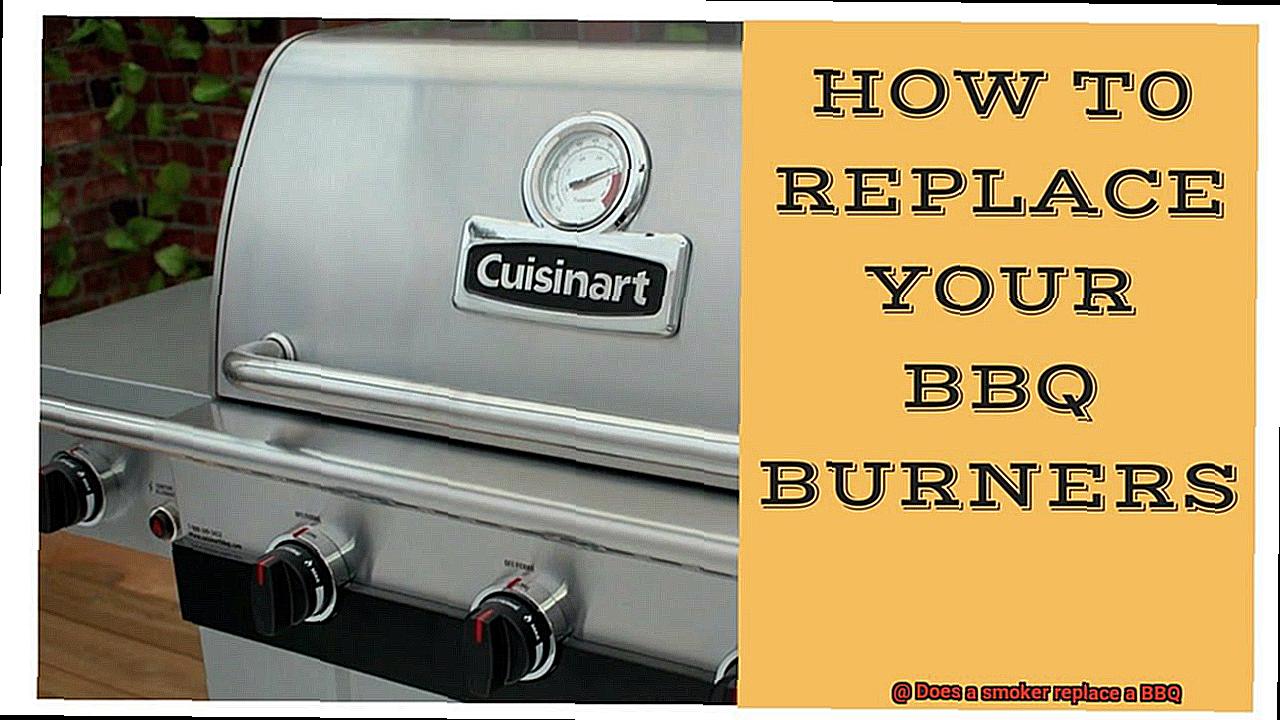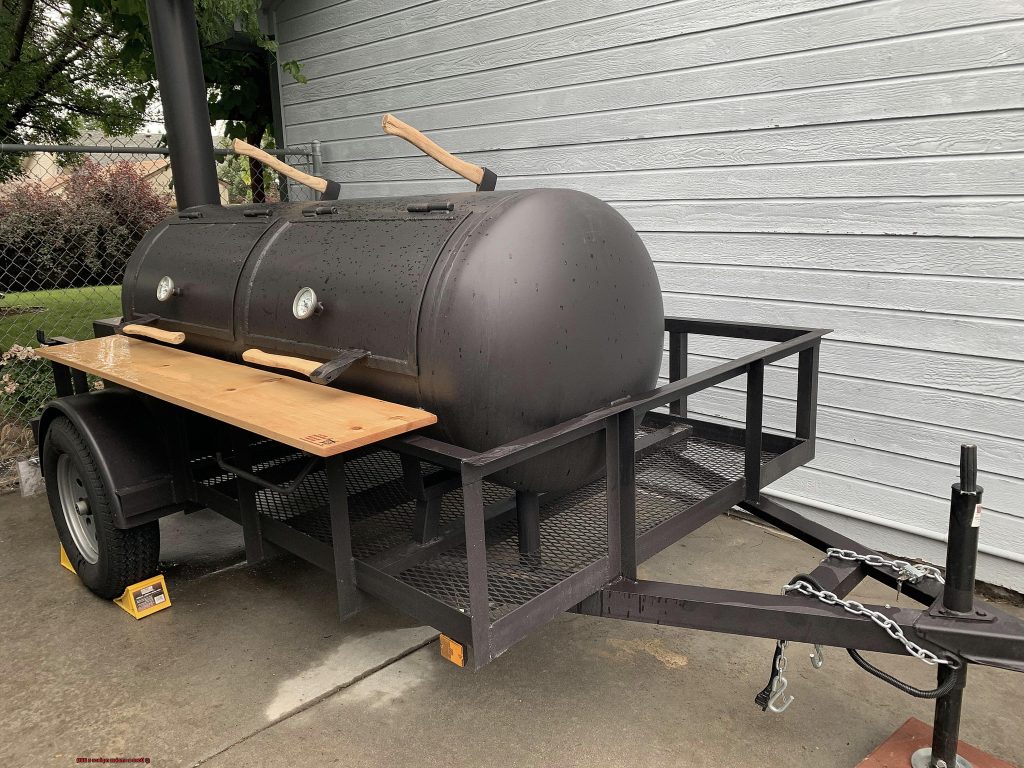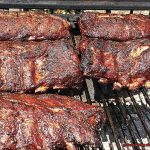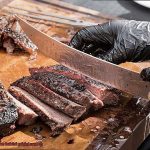Welcome to our blog post where we dive headfirst into the sizzling debate of smokers versus barbecues. Whether you’re a meat lover or just love playing with fire, outdoor cooking is a passion that unites us all. But when it comes to choosing between a smoker and a traditional BBQ, even the most seasoned grill master can find themselves in a smoky haze of confusion.
On one side, we have the trusty BBQ – a tried and true method that’s been around forever. It’s simple, easy to use, and provides instant gratification. Who can resist the mouthwatering scent of burgers and steaks sizzling over hot coals? But on the other side, we have the enigmatic smoker – an alluring contraption that promises to elevate your culinary skills to new heights.
In this blog post, we’ll take a deep dive into the pros and cons of using a smoker instead of a BBQ. We’ll explore the unique flavors that smoking brings to your dishes, as well as the time and effort required to master this technique. Are you ready to unlock the secrets of smoke and fire? Let’s embark on this flavorful journey together and discover whether a smoker truly replaces a BBQ.
Contents
What is a Smoker?
For those who revel in the joy of outdoor cooking, the distinction between a smoker and a BBQ is a topic of great debate. While both devices produce delectable results, they possess unique strengths and serve different purposes. In this comprehensive guide, we will delve into the intricacies of smokers, their slow cooking prowess, and how they infuse food with irresistible smoky flavors. By understanding the essence of a smoker, you can elevate your culinary adventures to new heights.
The Smoker: A Symphony of Slow and Low
A smoker is a specially crafted apparatus designed to slowly cook food at low temperatures, typically ranging from 225°F to 275°F. Its magic lies in the combination of indirect heat and aromatic smoke derived from wood chips or charcoal. This slow cooking process transforms meats into tender, succulent masterpieces while imbuing them with a mesmerizing smoky essence. Smokers excel at handling large cuts of meat such as brisket, pork shoulder, or whole chickens due to their ability to maintain steady temperatures over extended periods.
The Art of BBQ: Quick Heat Grilling at its Finest
On the other hand, a BBQ (barbecue) refers to the act of grilling or smoking food over direct heat. It is an art form that thrives on quick cooking at high temperatures, usually exceeding 400°F. BBQs possess a unique talent for creating that coveted charred flavor on the surface of meat, poultry, fish, or vegetables while ensuring that the interior remains juicy and tender. Steaks, burgers, hot dogs, and kebabs are just a few examples of dishes that shine when prepared on a BBQ.
Can a Smoker Replace a BBQ?
While a smoker can replicate some aspects of the flavors achieved by a BBQ (using wood chips to add smokiness), it cannot entirely replace the versatility and speed of a traditional BBQ grill. The secret lies in the direct heat grilling capabilities of a BBQ, which allows for quick searing of meats, resulting in a caramelized exterior that is difficult to replicate with a smoker’s slow cooking method.
Why Have Both?
The true culinary connoisseur understands the value of both a smoker and a BBQ in their outdoor cooking arsenal. The smoker’s slow cooking artistry delivers melt-in-your-mouth, smoky goodness with its ability to transform large cuts of meat into culinary perfection. Conversely, the BBQ’s direct heat grilling prowess ensures that steaks, burgers, and other quick-cooking items achieve that coveted sear and char. By embracing both devices, you unlock an expansive world of flavors and cater to a wider range of dishes, allowing your outdoor cooking adventures to reach new heights.
What is a BBQ?
At its core, a BBQ is all about grilling food over an open flame or hot coals. It’s more than just a cooking method; it’s a social gathering, a summertime tradition, and a way to bring people together. Picture yourself surrounded by friends and family, the tantalizing aroma of sizzling meat filling the air, and the sound of laughter and good times. That’s the magic of a BBQ.
When it comes to food, the possibilities are endless. From juicy burgers and succulent steaks to mouthwatering sausages and flavorful chicken, a BBQ is a carnivore’s paradise. But don’t worry if you’re not a meat lover – you can still join the party. Vegetables and seafood can also be grilled to perfection, adding a burst of flavor and color to your outdoor feast.
Fueling the fire is an essential part of the BBQ experience. Whether you prefer the classic smoky flavor of charcoal or the convenience of gas or electric grills, each fuel type brings its own unique touch to your culinary creations. Charcoal and wood are renowned for their ability to produce intense heat and infuse food with that sought-after smokiness.
Now, let’s talk technique. The key to a successful BBQ lies in controlling the temperature and ensuring even heat distribution. This can be achieved by adjusting the position of the food on the grill or by using techniques like indirect grilling. It may take some practice, but once you master the art of BBQ cooking, you’ll be rewarded with perfectly cooked, juicy bites that will have your taste buds dancing.
But wait, there’s more. BBQs have evolved over time to offer different types and styles. Portable grills are perfect for picnics and camping trips, while built-in outdoor kitchens provide a permanent setup for the ultimate backyard BBQ haven. And let’s not forget about smokers – these specialized BBQs take things to a whole new level. With their ability to slow-cook food at low temperatures while infusing it with smoky flavors, smokers are a favorite among BBQ enthusiasts who enjoy the challenge of creating tender, melt-in-your-mouth meats.
How are Smokers and BBQs Different?
Prepare for a sizzling journey into the captivating world of smokers and BBQs. These outdoor cooking methods may appear similar, but they possess unique characteristics that set them apart. Join me as we explore the differences between smokers and BBQs, from their cooking techniques and flavors to their design and construction.
Cooking Techniques and Flavors:

Let’s start with the basics. Smokers are masters of slow cooking at low temperatures, allowing wood chips or chunks to infuse food with a mouthwatering smoky flavor. This gentle process results in tender, melt-in-your-mouth dishes like succulent ribs and flavorful pulled pork. On the other hand, BBQs embrace high-temperature cooking, quickly searing meat over an open flame or hot coals. This method imparts a deliciously charred taste that is perfect for juicy burgers, sizzling steaks, and tantalizing kebabs.
Design and Construction:
Smokers boast a larger cooking chamber with multiple racks or shelves, accommodating large cuts of meat or multiple dishes simultaneously. They often feature a separate firebox or heat source, generating smoke and indirect heat that circulates around the food, ensuring even cooking throughout. In contrast, BBQs come in various sizes and designs, from compact portable grills to towering freestanding units. They typically consist of a sturdy cooking grate, a heat source (charcoal or gas burners), and a lid for trapping heat and capturing the essence of smoky goodness.
Cooking Techniques and Time:
Patience is key when it comes to smokers. The slow cooking process demands longer cooking times, often taking several hours or even overnight for certain recipes. This extended duration allows flavors to develop gradually, resulting in irresistible dishes that are worth the wait. On the other hand, BBQs offer faster cooking times, making them ideal for spontaneous gatherings or weeknight feasts. With their high temperatures, BBQs provide the convenience of quick and fiery cooking while still delivering delectable flavors.
The Ultimate Choice:
Choosing between a smoker and a BBQ ultimately depends on personal preferences, the type of food being cooked, and the desired flavors. Smokers are perfect for those who appreciate the art of slow cooking and crave the distinct smoky essence infused into their dishes. Whether it’s succulent ribs or tender pulled pork, smokers create culinary masterpieces that leave taste buds longing for more. BBQs, on the other hand, provide a quick and convenient way to enjoy the thrill of grilling without compromising on taste. From juicy burgers to perfectly seared steaks, BBQs deliver charred perfection that satisfies even the most discerning palate.
Advantages of Using a Smoker
From enhanced flavor and versatility to healthier cooking options and a unique social experience, smokers provide a range of benefits that elevate the grilling experience.
First and foremost, the flavor produced by a smoker is unmatched. The slow-cooking process allows the smoke from wood chips to infuse into the food, creating a deliciously unique smoky flavor. This flavor cannot be replicated with other cooking methods, making smoked dishes a true culinary delight. Additionally, the longer cooking times in a smoker help tenderize tougher cuts of meat, resulting in more flavorful and succulent final products.
Versatility is another key advantage of using a smoker. While traditional barbecues are primarily used for grilling and searing, smokers can be used for smoking, grilling, roasting, and even baking. This versatility allows you to experiment with different cooking techniques and flavors, giving you more control over the final outcome of your dishes.
When it comes to moisture retention, smokers excel. The slow and gentle cooking process in a smoker prevents food from drying out, ensuring that it remains juicy and tender. This is particularly beneficial when cooking large cuts of meat or poultry, as it helps to lock in the natural juices and flavors.
In terms of health benefits, smoking is considered a healthier cooking option compared to traditional grilling methods. The low and slow cooking process allows fat in the meat to gradually render out, resulting in leaner and healthier dishes. Additionally, smoking requires less oil or butter for cooking, making it an excellent choice for those looking to reduce their overall fat intake without sacrificing flavor.
Contrary to popular belief, smoking can actually save you time. Once you have set up your smoker with the desired temperature and wood chips, the cooking process becomes largely hands-off. This allows you to attend to other tasks or simply relax while your food slowly cooks. Moreover, smoking larger cuts of meat can be more time-efficient, as it enables you to cook for a crowd in a single batch.
Finally, using a smoker is not just about the food; it is also a social experience. The slow and relaxed cooking process creates an opportunity to spend quality time with friends and family. Whether it is gathering around the smoker to watch the food cook or engaging in conversations while waiting for the meal to be ready, smoking adds an element of communal enjoyment to the cooking process.
Advantages of Using a BBQ
Are you ready to elevate your outdoor cooking game? Look no further than a BBQ, the versatile and convenient culinary powerhouse that will have your taste buds dancing with delight. In this article, we will explore the key advantages of using a BBQ that make it the ultimate grilling companion for any occasion. So grab your tongs, fire up the grill, and let’s dive into the sizzling world of BBQ.
- Versatility: A BBQ is like a chameleon in the grilling world, adapting to your every culinary desire. Whether you want to sear steaks to perfection, roast vegetables with a smoky flavor, or even bake pizza on a stone surface, a BBQ can handle it all. With adjustable heat settings and various grilling surfaces, you have the freedom to experiment with different cooking techniques and recipes. Transform your backyard into an outdoor kitchen where grilling possibilities are endless.
- Quick Cooking: Time is precious, especially when hunger strikes. Thankfully, a BBQ is a master of efficiency, delivering deliciously grilled meals in a matter of minutes. No more waiting for hours while your food slowly cooks. With direct heat and high temperatures, a BBQ ensures that your meals are cooked quickly while still achieving that charred and smoky flavor. Enjoy the convenience of fast and flavorful cooking whenever you crave it.
- Convenience: Say goodbye to constantly monitoring temperatures and tending to fires. Modern BBQs come equipped with advanced features like temperature control knobs, built-in thermometers, and even automated timers. Simply set your desired temperature and let the BBQ do the hard work for you. This means more time to relax, socialize with guests, or simply enjoy the great outdoors while your food cooks to perfection.
- Portability: Whether you’re planning a picnic in the park or embarking on a camping adventure, a BBQ is your trusty grilling companion. Designed with wheels or handles, they are easily transportable, allowing you to take the grilling fun wherever you go. Imagine enjoying a perfectly grilled meal amidst nature’s beauty – it doesn’t get much better than that. Experience the joy of outdoor cooking wherever your wanderlust takes you.
- Variety of Cooking Methods: BBQs offer a wide range of cooking methods, giving you the freedom to explore different flavors and techniques. Whether you prefer direct heat for a quick sear, indirect heat for slow roasting, or a combination of both, a BBQ has got you covered. Experiment with marinades, rubs, and smoking woods to create unique and mouthwatering flavors that will impress your guests. With a BBQ, your culinary creativity knows no bounds.
Disadvantages of Using a Smoker
If you’re considering investing in a smoker, it’s crucial to weigh the pros and cons. Today, we’ll delve into the disadvantages of using a smoker compared to a traditional BBQ grill. So, grab your apron, and let’s explore the not-so-great aspects of smoking.
- The Price Tag: Smokers can be pricey, especially high-end models with all the bells and whistles. If you’re on a tight budget or only grill occasionally, shelling out big bucks for a smoker might not be worth it.
- Time and Attention: Unlike quick-cooking grills, smokers demand patience and attention. You’ll need to invest several hours (or even overnight) tending to your smoker, monitoring temperature and smoke levels. It’s like having a needy pet that demands your undivided attention.
- Cleaning Blues: Smokers can be a pain to clean and maintain due to grease and residue build-up. Get ready for extra elbow grease and specialized cleaning techniques. Plus, periodic maintenance and seasoning may add to your workload.
- Limited Versatility: While smokers excel at smoked meats, they may fall short when it comes to grilling veggies or delicate seafood. If you dream of an all-in-one cooking appliance, a smoker might not meet your needs.
- Smoke Signals: Smokers generate heavy smoke that can create a smoky environment, unsuitable for those with respiratory issues or areas with strict smoke emission regulations. The strong smoky flavor may also not appeal to everyone’s taste buds.
- Size Matters: Smokers typically have a smaller cooking surface area than grills, making it harder to cater to larger gatherings or parties. Prepare for multiple cooking sessions or risk being the host with hungry guests waiting.
- Storage Woes: Smokers require more storage space compared to grills. If your outdoor space is limited or you prefer portability, a smoker might cramp your style.
- Transportation Troubles: Planning a camping trip or tailgating adventure? Smokers’ larger size and weight make them less suitable for on-the-go situations that demand portability.
- Accessory Overload: To optimize your smoker’s performance, be prepared to invest in additional accessories like temperature probes, wood chips, or water pans. These extra costs can add up quickly.
Disadvantages of Using a BBQ
When it comes to outdoor cooking, BBQs are a popular choice. However, they do come with their fair share of disadvantages. Let’s dive into some of the drawbacks of using a BBQ and explore why alternative options like smokers might be worth considering.
First and foremost, setting up and cleaning a BBQ can be a time-consuming task. From cleaning the grill to organizing charcoal or propane and ensuring proper ventilation, there are several steps involved in preparing a BBQ for cooking. And let’s not forget about the post-cooking clean-up – it can be messy and take up a significant amount of your time. On the other hand, smokers tend to be easier to set up and clean, making your grilling experience more hassle-free.
Another disadvantage of using a BBQ is its limited cooking options. While BBQs excel at grilling burgers and steaks, they may struggle to achieve the same level of tenderness and smoky flavor that smokers provide. Smokers are perfect for low and slow cooking, making them ideal for smoking meats, fish, and even vegetables. If you’re craving that mouthwatering smoky flavor, a smoker might be the way to go.
Temperature control is another issue with BBQs. Maintaining a consistent temperature is crucial for achieving optimal grilling results. However, BBQs often rely on open flames and direct heat, making it difficult to control the temperature accurately. This can result in unevenly cooked food or even burnt dishes. Smokers, on the other hand, offer better temperature control for that perfect slow-cooked goodness.
Let’s not forget about smoke and flare-ups. The open flames and high heat of a BBQ can cause flare-ups, leading to burnt food or even accidents. Additionally, the smoke produced by a BBQ can be overwhelming, especially if cooking indoors or in a small space. Smokers, on the other hand, produce less smoke and are often designed to be used indoors with proper ventilation systems.
One major disadvantage of using a BBQ is that it requires outdoor space. Most BBQs are designed for outdoor use due to safety concerns related to open flames and smoke production. So if you don’t have access to an outdoor space, you may not be able to use a BBQ effectively. Smokers, on the other hand, can often be used indoors with proper ventilation systems.
Another point to consider is the additional accessories or equipment that BBQs may require. To enhance the grilling experience, many BBQ enthusiasts invest in accessories like grill mats, tongs, thermometers, and brushes. These additional items can add to the cost and maintenance of using a BBQ. Smokers, on the other hand, may require fewer accessories as they are designed specifically for smoking foods.
EJqllBPDM18″ >
Conclusion
In conclusion, while a smoker can certainly enhance your BBQ experience, it cannot fully replace the traditional grill.
The unique flavors and textures that a BBQ provides simply cannot be replicated by a smoker alone. That sizzling sound as the meat hits the hot grates, the smoky aroma that fills the air, and the charred, crispy edges that add depth to each bite – these are all elements that make a BBQ truly special.
So, if you’re looking for those mouthwatering grill marks and that unmistakable taste of summer, don’t toss out your trusty BBQ just yet.






